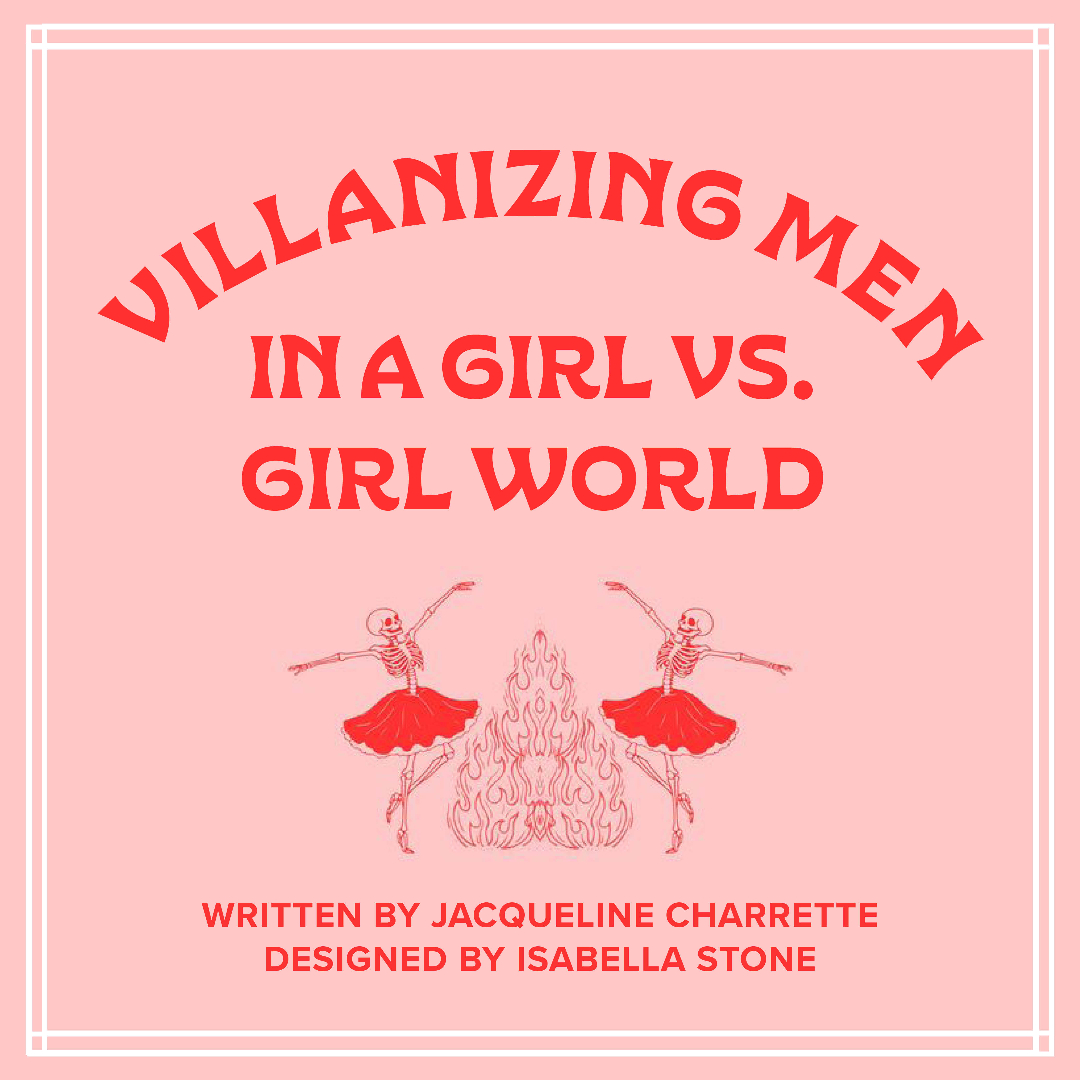
Media and pop culture is dominated by the female and feminine. It’s the era of the “girl’s girl,” 2023 was declared the year of Taylor Swift and Charli XCX invented “brat summer.” With pop culture seemingly centered around women, one would expect to see a culture that uplifts and protects women from undue ridicule and sexism. Unfortunately, this is not the case.
Considering the title of this article, you are likely expecting a man-hating rampage, but my current attention is focused on how the media’s treatment of famous love triangles illuminates the deeply patriarchal notions that lie at the foundation of our cultural norms. The love triangles between Prince Charles, Princess Diana and Camilla Parker-Bowles; Justin Beiber, Selena Gomez and Hailey Baldwin Beiber; and Tristan Thompson, Khloe Kardashian and Jordyn Woods all three share the same essential plot: a man was with one woman and cheated on her and/or left her for the other. Despite all these affairs being sparked by the actions of a man, it was the women who paid the price.
The tabloids were extensive in their coverage of the royal affair in the early 1990s. However, their attention exclusively covered Camilla and Diana’s feud over Charles. The tabloids tore down Camilla, calling her ugly, evil and classless, and while they praised Diana for her superior beauty and personality, they ignored the emotional distress the publicity of her husband’s infidelity caused her and completely ignored why this “feud” existed in the first place: Charles. The media preferred to talk about the two women’s looks rather than about Charles’ deception and how his mistreatment and public affair drove Diana to depression, bulimia and suicidal ideation.
Social media reveled in tearing down Hailey and Selena. According to fans, Hailey was a consolation prize and a crazy stalker fan-girl who copied Selena to win Justin’s love. And Selena was a crazy pick-me who craved public pity and purposefully encouraged hate against Hailey. Somehow, in fighting over which woman is more crazily obsessed with Justin, the fact that Justin dogged and embarrassed both of them has been completely ignored.
Finally, while people were quick to call Tristan trash for cheating on his girlfriend who was days away from giving birth, they were even quicker to label Jordyn a homewrecker, bad friend and fame chaser, and Khloe as stupid and desperate, saying she had it coming since she knew Tristan was a cheater. While hooking up with the father of your best friend’s sister’s child is crazy, somehow people forget a home can not be entered unless someone is willing to hand them the keys.
It seems that rather than holding men accountable for their cruelty, disregard, apathy and carelessness, we prefer to place the blame onto women for being too ugly, too old, too crazy, too clingy, too desperate, too slutty and any other degrading characteristics. Such a propensity leads us to be more focused on determining the value of women rather than considering the values — or lack thereof — these men are upholding. It is more important to us to quantify the value of women than to consider the character of men. I know what you’re thinking: “but I hate [insert any scummy male celebrity].” While many may dislike these unscrupulous men, this is not what dominates the conversation. The mild condemnation and mockery these men face means nothing compared to the microscope placed on the very essence of who their female “victims.” Charles may be called ugly, but Camilla is evil; Justin may be called musty, but Hailey is a stalker; Tristan may be called a P.O.S, but Jordyn is the enemy of girl code.
Why do we do this? First, we do it with the assumption that we are not subject to the same ridicule. Yes, none of us are celebrities involved in public love affairs, but we, especially women, are still objects of public dissection. Whether we like it or not, we are subject to the same fate of devaluation; while we sit in our rooms, scrolling through TikTok comments analyzing female celebrities’ bodies, minds and character, someone else is sitting in their room analyzing our looks and personalities to determine our worth. I don’t write this to create even more anxiety about being perceived, I say it to remind us that these are real people, and we likely would not jump at the opportunity to degrade the women in our lives in the same way we do to these female celebrities. When we engage in this behavior we further normalize the idea that there are women who are objectively more “valuable” and “worthy” than others and allow people to base women’s “values” on abstract and unattainable notions of the “perfect” woman.
An even more important assumption that underpins this behavior is that women function to earn men’s attention and adoration and that in turn, male approval determines a woman’s value and success in life. With this logic, it naturally follows that Jordyn is a low-class side chick and Khloe is desperate and naive because our culture can only perceive women through how men treat them.
So, by villainizing men, I mean simply holding them accountable for their actions. Radical, I know, but until we can move past the notion that it is men — their love, attention and approval — who determine women’s worth, pop culture and media will continue to be dominated by patriarchal structures that do nothing but externally and internally oppress women, no matter how girl-power coded it may be.